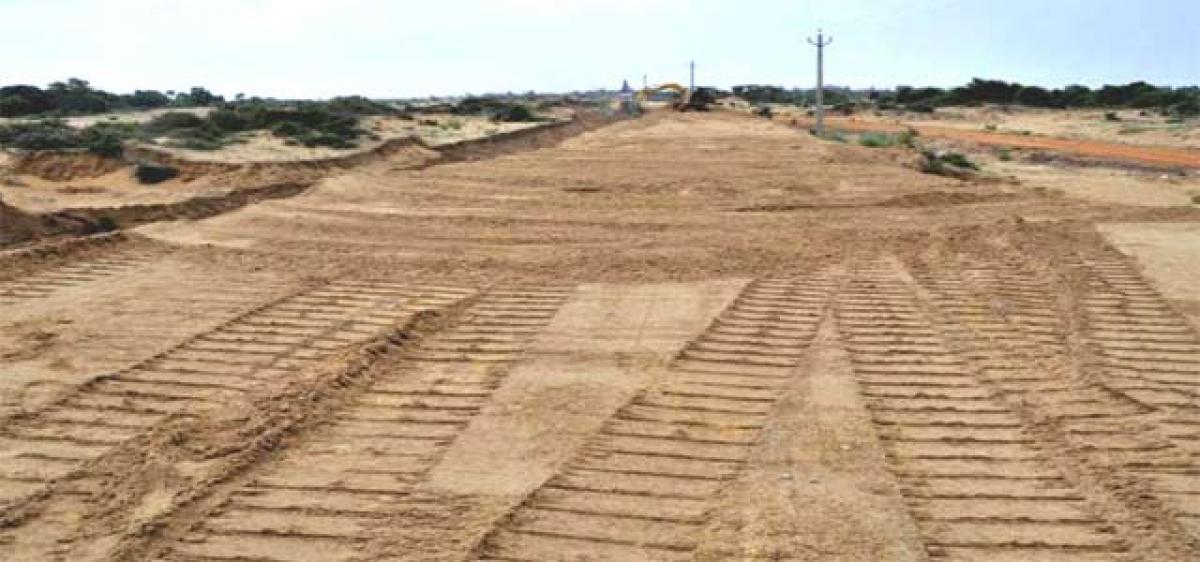GO 123, the 2013 Act and the displaced

The High Court has quashed the GO 123 issued by the Telangana government which provides for expeditious acquisition of lands from land owners for public purpose.
GO 123 and its amendments are in no way similar to or better than the 2013 Act. There should be a fundamental difference between government and private property dealers. A private property dealer compensates for the loss of property alone-in this case the land of land-owner. But, a government cannot do so as it is legally endowed with the responsibility of protecting the lives and livelihoods of all the people concerned
The High Court has quashed the GO 123 issued by the Telangana government which provides for expeditious acquisition of lands from land owners for public purpose.
The court held that the GO bypasses The Right to Fair Compensation and Transparency in Land Acquisition, Rehabilitation and Resettlement Act, 2013.
The 2013 Act confers rights not only on those whose lands and other immovable property are to be acquired by the State, but also on families which do not own land, but one of whose members is an agricultural labourer, an agricultural tenant, an artisan or a share-cropper whose primary source of livelihood is adversely affected by the acquisition of land.
Certain rights are also conferred on the Scheduled Tribes, other traditional forest dwellers who have lost their forest rights, gatherers of forest produce, hunters, fisher-folk and boatmen, and on those who have been assigned lands by the State government. Thus, the 2013 act confers on these non-landowners too the status of affected families.
Every attempt to circumvent the 2013 Act by enacting separate state acts or promulgating GOs is essentially aimed at denying the livelihood losers a fair compensation.
There should be a fundamental difference between government and private property dealers. A private property dealer compensates for the loss of property alone in this case the land of land-owner.
But, a government cannot do so as it is legally endowed with the responsibility of protecting the lives and livelihoods of all people concerned.
The Government of Telangana issued the GO 75 on 05.06.2015 formulating a policy called “The Telangana State Policy for Acquisition of Land through Agreement under the 2013 Act.” It’s a policy to guide and enable the government to acquire lands, in strips or pockets, which become critical for proper viability of the project; and to bring the envisaged components of the project to their logical deliverable stage in any irrigation project, or a road work etc.
Later, the Government issued GO 123 on 30.07.2015 for procuring land, and other structures thereon, from willing land owners by the procuring agencies for public purposes.
This GO stipulates that, in order to expeditiously procure land for public projects, the government deems it fit to come out with a framework that allowed land owners to participate in the development process by willingly selling their land, and properties thereon, for a consideration on the basis of an agreement between the land owners and the Procuring Agency.
Thereafter, the GO 214 was issued on 28.11.2015 amending para 2 (viii) of GO123 and the words “equivalent costs required for rehabilitation and resettlement of willing land owners and others” were deleted.
The contention of the State government is that the GO 123 was issued for procuring lands in an expeditious manner from the land owners who come forward willingly and voluntarily sell their lands and properties for an agreed consideration between the land owners and the requisition agency, without any force or coercion; as and when the State requires land for a public purpose.
In case the land owners are not willing to sell their lands under GO 123, the State would acquire the land under the 2013 Act, or any other law in force.
Therefore, the State government believes that there is no conflict between the 2013 Act and the GO 123. The State government argues that it is empowered to do so under Section 108 of the 2013 Act itself.
But, Section 108(1) of the 2013 Act applies only to higher compensation and, under Section 108(2), only to better rehabilitation and resettlement.
Section 107 of the 2013 Act stipulates that nothing in the 2013 Act shall prevent any State from enacting any law to enhance or add to the entitlements enumerated under the 2013 Act which confers higher compensation than payable under the 2013 Act or to make provisions for rehabilitation and resettlement which is more beneficial than those provided under the 2013 Act.
Section 108 (1) stipulates that, where a State law or a policy framed by the Government of a State provides for a higher compensation than calculated under the 2013 Act for the acquisition of land, the affected person or his family or member of his family may, at their option, opt to avail such higher compensation and rehabilitation and resettlement under such State law or such policy of the State.
Section 108(2) stipulates that, where a State law or a policy framed by the Government of a State offers more beneficial rehabilitation and resettlement provisions under that Act or policy, than under the 2013 Act, the affected persons or his family or member of his family may, at his option, opt to avail such rehabilitation and resettlement provisions under such State law or such policy of the State instead of under the 2013 Act.
But, the requirement of a social impact assessment and the food security provisions of the 2013 Act, are not adhered to in the case of lands being purchased by the State Government under the GO 123. The State government often argues that it is acquiring land under the GO 123 only on the consent of the land owner.
Even if we accept the argument that the State has the power to acquire property and to make contracts for such purposes, the GO 123 can be resorted to for voluntary purchase of land from willing land owners, but whether the said GO can be applied to deprive the statutory rights of other categories of persons, who are not land owners but are dependent upon it for their survival, is a different matter altogether.
The landless agricultural labourers, artisans etc are forced to abandon their only source of livelihood, and migrate to places outside, resulting in violation of their right to life guaranteed under Article 21 of the Constitution.
The title of GO 123, “Procurement of land and other structures thereon from Willing Land Owners by the Procuring Agencies for public purposes,” makes it amply clear that the said GO does not even refer to the rights of those who lose their livelihoods.
It needs to be emphasised that the 2013 Act defends the rights of such people to fair compensation though their land or any property is not lost due to land acquisition.
The State government professes its intention to provide rehabilitation and resettlement benefits to all affected families, other than land owners, and claims that the rehabilitation and resettlement measures, under GOs 190 and 191, adequately safeguard the interests of the affected families.
By the GO 190 dated 10.08.2016, the Government of Telangana decided to provide welfare measures to families, whose livelihood is being affected due to land procurement under GO 123 i.e., agriculture labourers, artisans and, more particularly, people from the Scheduled Castes, the Scheduled Tribes and the Backward Classes working as labourers who do not own any lands in the said village, and have been residing in the area for the last three years.
The GO 191 dated 15.08.2016 was issued amending the GO 190. The GO 190, however, does not prescribe a satisfactory procedure, much less a procedure which is more beneficial than what is provided under the 2013 Act, to identify those who are entitled to, and to provide them, the rehabilitation and resettlement benefits stipulated under the 2013 Act.
While the benefits mentioned in these GOs appear to provide for monetary compensation equivalent to several of the benefits stipulated in the Second Schedule to the 2013 Act, the obligation placed on the State by the Second Schedule, of giving an option to the affected families of creating jobs in their favour after providing them reasonable training and skill development in the related field, and to make provision for employment with wages not lower than the minimum wages to at least one member of each affected family in the project, or to arrange for a job in such other projects as may be required, is not being fulfilled under the GO 190. The said GOs do not also obligate the State to provide the infrastructural facilities prescribed in the Third Schedule to the 2013 Act.
While purchasing lands from willing land owners under GO 123, the rights of these deprived sections who, though not owners of the land, are dependent upon it for their survival, cannot be violated by the State.
While these under-privileged sections may, in view of their abject poverty, be persuaded to accept the financial package provided in GO 190, the fact remains that the financial incentives provided in GO 190 do not cover all the statutory entitlements of the non-land owners affected families under the Second and Third Schedules to the 2013 Act.
As these rehabilitation and resettlement provisions of the 2013 Act are made in the larger public interest of minimising the trauma of displacement, and in providing an adequate means of livelihood to those would suffer the most. Therefore, the GO 123 and its amendments are in no way similar to or better than the 2013 Act.














